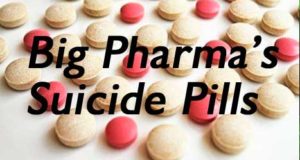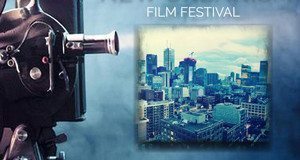Airing Thursday, January 19, 2017 – 8 PM EST on CBC’s The Nature of Things
White Pine Pictures presents the world broadcast premiere of its new documentary, PTSD: Beyond Trauma, written and directed by award-winning Patrick Reed (Guantanamo’s Child: Omar Khadr, Fight Like Soldiers Die Like Children, Triage), produced by Andréa Schmidt and executive produced by Peter Raymont.
All those feelings, the smells, the colours…I thought they’d never go away. I started really sinking, drowning in my memory. It was unbearable. – Max Guiolet, witness of Nov 2015 Paris terror attacks.
From Hollywood blockbusters to front-page news, the tormented war veteran unable to transition from war zone to home front is everywhere.
The challenge is there’s not one single thing that is PTSD. The trauma types are as diverse as the whole range of human experiences, but then, people express their PTSD in different ways. – Dr Alik Widge, Psychiatrist and Engineer, Boston, MA
Scientists are developing increasingly clear pictures of the brain activity that results in PTSD. But as they search for a sure-fire treatment, they’re still trying to understand a confounding question: When so many people experience the trauma of sudden loss, near-death, or violence, why are some more vulnerable to PTSD than others?
PTSD: Beyond Trauma investigates the cutting-edge medical and scientific research that’s seeking answers to these questions. And they are working on treatments that are helping survivors of trauma get their lives back after unimaginable horrors.
Survivors like Ute Lawrence and Stan Fisher, a couple who were trapped in the wreckage of an 87 vehicle pile-up in one of Canada’s worst car crashes. Though they walked away physically unharmed, the psychological fallout was overwhelming and reverberates to this day, 18 years after the accident. Back in 1999, they enrolled in a study led by Dr Ruth Lanius of Western University that used brain scans, revealing that peoples’ responses to trauma are as varied as the individuals themselves. For Stan, who was behind the wheel during the accident, scans show that his brain is ‘lit up’ when his PTSD is triggered, whereas Ute’s response is the opposite, with her scans clearly showing her brain activity has virtually shut down.
PTSD Beyond Trauma gets an inside look at some promising treatments to relieve survivors’ symptoms. Dr. Alain Brunet, a Clinical Psychologist at Montreal’s McGill University had developed a new treatment for PTSD and was eager to test it on those suffering PTSD after November 2015’s terror attack in Paris.
For Max Guiolet, caught in the Paris attack, the treatment, which consisted of taking Propranolol, a beta-blocker while recalling his traumatic event was the miracle he sought. The medication, which blocks the emotional strength of the memory without dulling the recollection of the event, may be able to help large numbers of people quickly and easily. Brunet claims that after just 6 sessions with the aid of this readily available drug, PTSD can be cured.
Scientific breakthroughs are great if they lead to something. But what of the kid that I’m working with who’s paralyzed from the waist down, what does he care what’s going on in his brain since he got shot? – Dr. Brad Stolbach, PhD youth trauma psychologist, Chicago, IL
But recovery is more complicated for people who’ve endured repeated trauma, and those who are traumatized early in life. “The more repeated the trauma the more difficult the disorder is to treat,” says Dr. Ruth Lanius, Director of PTSD Research at Western University.
Laura McKeon was raped when she was 16 and with each flashback her feelings of worthlessness and helplessness were reinforced. She was sexually assaulted twice more over the next decade, hiding the events from her friends and family. According to Lanius: “People who shut down because they feel they’re completely helpless, that you know whatever they do will still result in them being hurt, and have this complete loss of agency during the trauma, clinically usually are much sicker than individuals who haven’t experienced that.”
Lauren grew increasingly paralyzed by anxiety and panic attacks, until her secret grew too much to bear. A writer by profession, she shared her story with her family and with the public in an article. It was a major step toward healing, diminishing the power of the shame she’d carried for 15 years.
For more than two decades, Dr. Brad Stolbach, a trauma psychologist at the University of Chicago has worked with African American and Latino youth who’ve been traumatized by violence in the city’s toughest neighbourhoods. An innovative program he co-founded, Project Fire offers youth who have been shot, the chance to learn glass blowing. It’s dangerous but not deadly and seems to help counteract PTSD symptoms. “It’s very hard to be working with glass and not be in the present moment. It’s very hard to be doing that work and not become mindful. And that’s the way to help people who have been traumatized”, according to Dr. Stolbach. But ultimately, the solutions have to address all the sources of violence and disadvantage that hamper the youths’ development and make them vulnerable to PTSD. Says Stolbach, “You can’t pinpoint a specific time when the trauma occurred because there were so many toxins in their lives. We have to as a society make a commitment to deal with this and to fix it. We need to decide do we want to be in a society where everybody is fully human or not.”
PTSD: Beyond Trauma offers a timely exploration of the mental suffering caused by trauma, and the cutting edge scientific research to understand and to heal it—research that’s producing significant and sometimes controversial breakthroughs.
Director/Producer Patrick Reed has directed and collaborated on several award-winning documentaries for White Pine Pictures. Many of Reed’s films explore human rights issues, following compelling characters as they struggle with the past and present. One of his first assignments with White Pine was researching and producing Shake Hands With The Devil: The Journey of Roméo Dallaire, which won the World Cinema Documentary Audience Award at Sundance 2006, and Best Documentary Emmy in 2007. Additional credits include the top rated documentary Tar Sands for the CBC; Pets on Prozac (CBC); Triage: Dr. James Orbinski; Fight Like Soldiers Die Like Children, and Guantanamo’s Child: Omar Khadr.
Andréa Schmidt, Producer: For five years, based in Washington, DC and New York City, Schmidt produced and directed for Al Jazeera’s U.S. current affairs documentary show Fault Lines, helping establish the show’s distinctive voice over more than 20 episodes. She was a producer/co-writer of “Haiti: Six Months On,” the Fault Lines documentary that garnered Al Jazeera its first Alfred I. DuPont award (2012).
In 2014, Schmidt helped launch AJ+, Al Jazeera’s youth-focused digital channel, as the executive producer of the short documentary strand. In 2015, she worked as an Executive Producer of documentary series for VICE Canada, leaving to pursue independent journalism and filmmaking.
– # –
Associated Links
White Pine Pictures
White Pine Pictures: www.whitepinepictures.com
Twitter: https://www.twitter.com/WhitePine_TO
Facebook: www.facebook.com/WhitePinePictures
Why I Made Beyond Trauma – director, Patrick Reed
Through my past documentaries, Shake Hands with the Devil, and Triage, I have had unique access to high profile individuals who have struggled with PTSD—people like General Roméo Dallaire and Dr. James Orbinski. Both were in Rwanda during the 1994 Genocide. Both witnessed some of the worst of humanity. Both were understandably haunted by the memories.
When I started making this film, Beyond Trauma, I had an ongoing interest in PTSD. But my interest is more than professional. It’s also personal.
Most Canadians have never gone to war or have lived through genocide. But many know people who struggle with traumatic memories, friends and family who often suffer in silence—whether out of guilt or a belief that PTSD somehow only affects the military or humanitarians, or other “exceptional” people.
A few years back, on September 11th, 2010, my own parents were riding on a double decker bus near Syracuse, New York. In the middle of the night, the driver inexplicably went off route, and drove under a railway bridge, tearing the top-level off the bus.
Four people died.
My mom was physically hurt. But eventually she fully recovered.
My father was physically unharmed. But he couldn’t shake the memories.
As my siblings and I watched the unfolding media coverage, many of us had the same surprised reaction. My mom spoke in great detail about the event. My dad sat quietly beside her. My dad has never been quiet before in his life. Ever.
My father is a very interesting, thoughtful man, but of a generation where you rarely admit you’re struggling with a mental illness. For him, personal strength is a defining attribute, and essential as the father of 11 children.
“Put your head down and keep your feet moving,” was one of his standard lines. And yet, in this case, that advice didn’t work for him.
My father admires others like Dallaire and Orbinski who talk about their experiences. But for him, their struggles are justified because their experiences were exceptional. For my father, he was just in a traffic accident, however brutal.
Eventually, he did seek treatment, and his PTSD symptoms subsided.
For me, exploring the science of PTSD and profiling how different people cope with the disorder was motivated by my father, and people like him. Part of the healing process for many is finally realizing that PTSD affects not just the military, and is not a mark of weakness.
Sometimes, in fact, the true measure of strength is admitting you need help.
— Patrick Reed
 TheBulletin.ca Journal of Downtown Toronto
TheBulletin.ca Journal of Downtown Toronto

